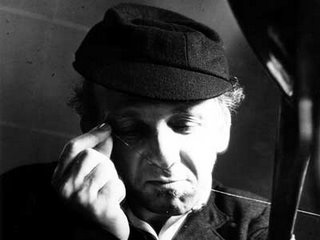Janice Galloway (b.1956)

Janice Galloway was born in Saltcoats, Scotland, in 1956. She was the second daughter of James Galloway and Janet Clark McBride, and came much later than the other children in the family; her mother once referring to the birth gap as "a mistake".
Her father, James, was an alcoholic and very unpredictable. “He was very sentimental about his children in public,” Janice once said, “but apart from that, I have few memories of him.” Her parents separated when she was four and her father died when she was six years old.
Janice was raised by a family with a strong connection to the Ayrshire mining industry and as was normal for that part of the world, money to support the family was hard-earned. As a widow, her mother, Janet, was entitled to a job in the local school as dinner lady as well as the state widow's pension, the equivalent of 50p per week.
Despite working through a deprived school system, she was bright and attentive and enjoyed learning. Music lessons drew the best out of her from an early age and in those days ear testing was carried out as standard. Any child showing some talent was given an instrument to play with free lessons thrown in. Galloway once admitted her school’s approach to music “changed my life”.
The school she attended had two orchestras, three chamber groups and various choirs. Janice joined them all. She received assistance and encouragement from her music teacher, Ken Hetherington, to the extent it was he who asked Galloway’s mother if she could go to University. After several attempts to persuade Janet, she agreed and Janice left for Glasgow University.
She studied Music and English before taking a year out and working briefly as a Welfare Rights Officer for Strathclyde Regional Council. She had become disillusioned with the establishment, but later returned to complete her degree.
After she graduated Janice found herself unemployed for some time. Fed up with seeing her daughter’s failure to turn a further education qualification into a serious pay packet, caused Janet to persuade Janice to go into teaching. She taught for ten years and later attended a writers' class at Glasgow University, where she used her creative energies to address the issues of depravation and the transformation she went through from child to adult.
Her acclaimed first novel, The Trick is to Keep Breathing (1989), a bleak story of alienation set on a council estate in Glasgow, is widely considered to be a contemporary Scottish classic novel. It won the MIND Book of the Year/Allen Lane Award and a Scottish Arts Council Book Award, and it was short-listed for the Whitbread First Novel Award and the Irish Times International Fiction Prize. It was adapted for the stage by Michael Boyd and has been performed in Glasgow, London and Toronto.
Her second novel, Foreign Parts (1994), describes two women's adventures on a driving holiday through northern France and won the McVitie's Prize for Scottish Writer of the Year. In that same year, she was awarded the E. M. Forster Award from the American Academy of Arts and Letters.
Galloway is the author of two collections of short stories: Blood (1991), which was short-listed for the Guardian Fiction Prize and the Saltire Society Scottish Book of the Year Award, was also named as a New York Times Notable Book of the Year. Where You Find It followed in 1996 before Galloway took employment as a writer in residence for four Scottish prisons.
In 1999 she was the Times Literary Supplement Research Fellow to the British Library, and recently she has worked with the composer Sally Beamish on an opera libretto, Monster, based on the life of Mary Shelley, which was performed in Glasgow in the spring of 2002.
Her radio work for the BBC has included the two-part series Life As A Man, a major 7-part series entitled Imagined Lives, and, most recently, In Wordsworth's Footsteps. Her latest novel, Clara, about the nineteenth-century musician Clara Schumann, also published in 2002, is the winner of the Saltire Society Scottish Book of the Year Award.
Also of that year was awarded a Scottish Arts Council Creative Scotland Award in order to work on a collaboration with visual artist Anne Bevan. The project incorporated text and sculpture, 'throwing a new perspective on the medical processes surrounding women', and was shown at the Hunterian Museum during early 2004.
Janice Galloway’s work is representative of contemporary Scottish life as she employs an ironic and knowing world-weary sense of humour to depict the condition of Scottish urban life. Her writing gives voice to the feminine condition in Scottish working-class communities, largely ignored by Scottish writers up until now.
As with other writers of the new Scottish renaissance, in the years after devolution her interests have turned from a consideration of the specifically Scottish to broaden her outlook as a participant in European and global culture. Galloway has emerged as a significant force in Scottish cultural life, and her writing has given voice to females within Scottish working-class communities, largely ignored by Scottish writers up until now.

